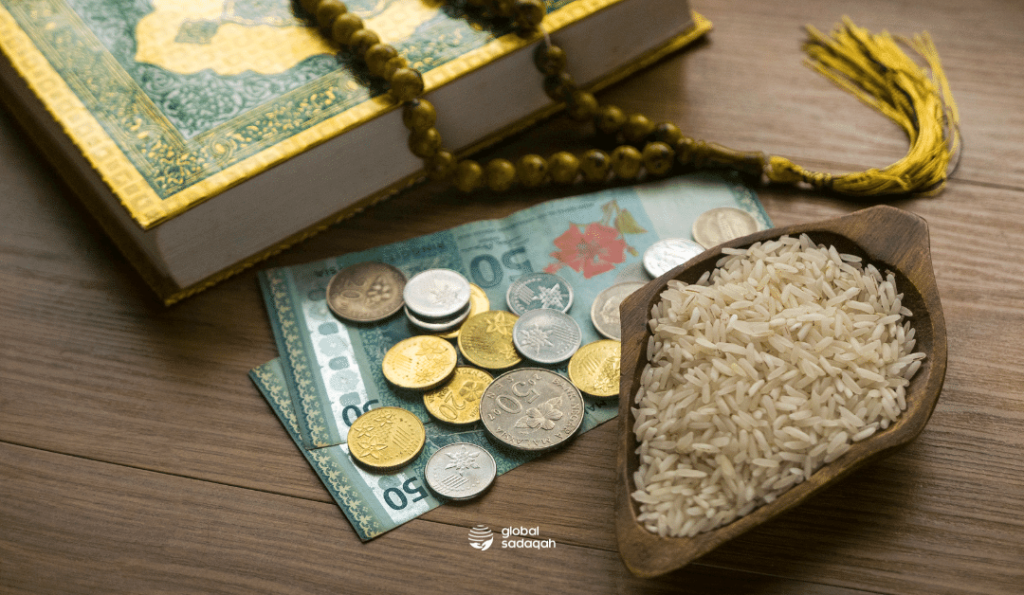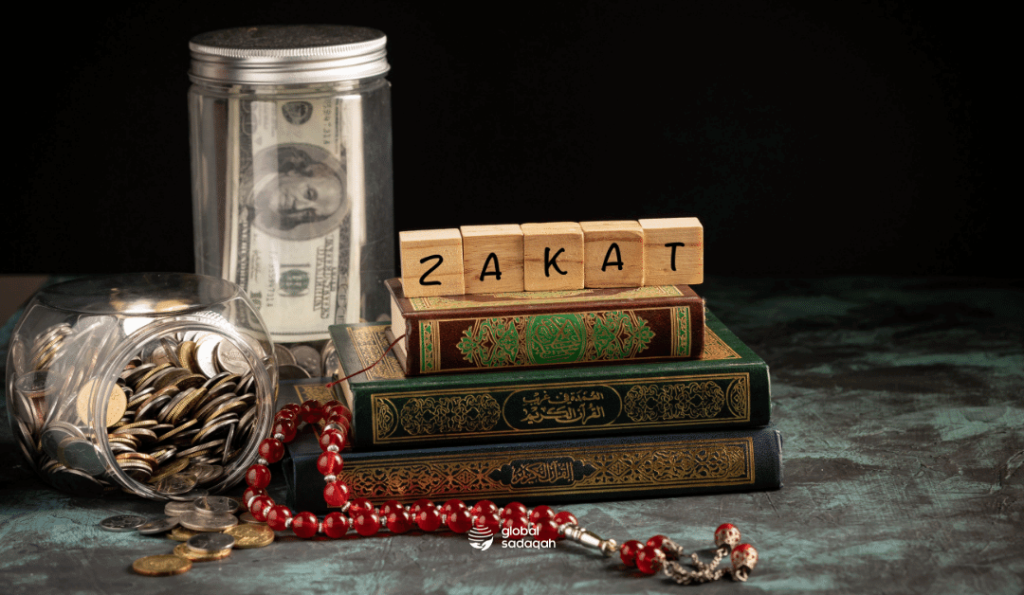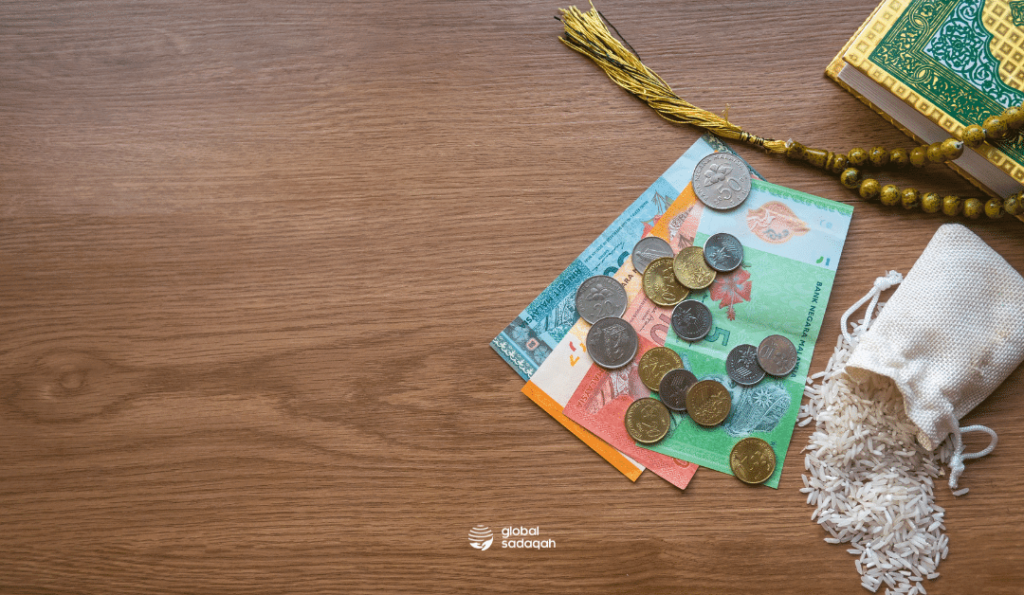Zakat is an obligatory form of charity that all eligible Muslims pay as required by the Shariah. If you’re a Muslim and you have a certain amount of wealth, you probably already pay Zakat every year. But a lot of us don’t really comprehend how Zakat can impact and shape society for the benefit of those in need.
This article features the impact of Zakat in Muslim society. To read other articles in our Zakat series, click here.
Understanding the impact of Zakat
The system of Zakat ensures proper distribution of wealth and has a wide impact on the entire set-up of an ideal Muslim society. If Zakat is established as an institution, it will create a collective social security scheme for mutual help/sympathy and the resources of the rich can be further utilised for the benefit of the poor and subsequent social development of the entire society.
Zakat, being obligatory for those who qualify as donors, is practically a system of social equity that ensures that the gap between the rich and the poor is lessened in society. It predetermines the donors and the recipients in order to ensure a fair redistribution of wealth.
While all of this sounds nice, the current reality is a stark contrast from this ideal scenario. Instead, the real potential of Zakat is stunted.

The reality on the ground
In the current status quo, wealth is not redistributed across the socioeconomic hierarchy efficiently. Without the implementation of Zakat, taxes alone are not sufficient to reduce the gap between the rich and the poor. For example, the World’s 22 richest men have more money than all the women in Africa combined. This indicates a blatant disregard for social and economic equity under the modern capitalist system.
The institution of Zakat, on the other hand, is a religious ordainment and much more. If understood and carried out correctly, it has the potential to bring about widespread change, empower the poor and needy, and eradicate financial exploitation.
The National Zakat Foundation (UK) states, “The woes of modern day Zakat are in stark contrast to the success of Umar bin Abdul-Aziz, who is oft-mentioned as the poster child of Zakat success. Historical accounts show that there was a surplus of Zakat funds during his reign i.e. there was so little poverty, that Zakat eligible recipients were scant. Contemporary studies show that if everyone were to pay their Zakat in particular Muslim countries, absolute poverty would be significantly reduced, or even eradicated (Islamic Social Finance Report, 2014).
However, the actual mobilisation of Zakat funds is particularly low. In this respect, Umar’s commitment to fairness was a factor that reduced the gap between actual and potential Zakat funds. From this we can garner that trustworthiness of a Zakat institute is crucial to encourage people to pay Zakat.
The way Zakat funds were used was also a major success factor. The focus was upon encouraging agriculture and general productive capacity. This contributed towards an increase in income, causing more to be eligible for paying Zakat, and less people eligible to receive Zakat. As such Zakat revenues increased. Economic theory also supports the focussing upon agriculture as a starting point of economic development.”
Should we just invest the zakat funds to get more funds? Sheikh Ibrahim Nuhu حفظه الله said, “Zakat and Waqf is for the current needs of the people. It is needed NOW. Investing these funds for future benefit cannot take precedence over the current needs of the people. I dare anyone to come and tell me that there are people or a place where Zakat and Waqf is not needed. These investments can only be done when there is no one to benefit from the Zakat and such a thing doesn’t exist now.”
He also said, “From the Sunnah is to take the Zakat from the rich and give it to the poor immediately. There is no room to invest the Zakat. Investment carries a lot of risks. Who guarantees the risk? Who monitors it? How can you do business with the money you don’t even own? Who gave you the permission to think and act on behalf of someone else?” This is the classical position and the safest opinion.
That being said, the reality on the ground is very different. The Third Symposium of Zakat Contemporary Issues held in Kuwait (1992) set out detailed conditions under which Zakat funds could be invested. These are:
- There must not be urgent channels that require the immediate application of Zakat funds.
- Zakat funds must be invested in a legal and Shariah-permitted manner.
- Necessary precautions should be taken so as to guarantee that the rules of Zakat continue to apply to the original invested money as well as to its profits.
- Invested assets must be liquidated if Zakat recipients need Zakat in cash. (This point takes into account the concern raised by the more conservative group of scholars on the matter.)
- It must be ensured that such investments will be safe, lucrative and can be liquidated in times of need.
- The decision of investing Zakat funds should be taken by the government officials entrusted with the task of levying and distribution of Zakat. Such investments should be supervised by efficient experts.

The gap between global potential and actual Zakat collection
Two studies by The Islamic Research and Training Institute (IRTI), a member of the Islamic Development Bank (IsDB) Group (IRTI-IDB) and World Bank estimate the potential global Zakat collection in the range of US$550-600 billion. Against this potential, how much Zakat is mobilised across the world? A back-of-the-envelope calculation provides some interesting insights. Rounding off the latest actual collection figures as reported by various issues of the IRTI Islamic Social Finance Report (Obaidullah et al, 2014, 2015, 2017), we find the following data:
Saudi Arabia: US$4 billion
Malaysia: US$600 million
Indonesia: US$270 million
Sudan: US$225 million
India and Pakistan: US$100 – 150 million each
Islamic Relief Worldwide (collected from 1st world Muslims): US$100 million
Singapore: US$20 million
Brunei: US$15 million
South Africa: US$10 million
The total adds up to US$5.5 – 6 billion
This works out to be around 1% of the estimated potential. Note that among other notable countries with significant Muslim populations, Iran doesn’t have Zakat. Muslims in Russia, CIS countries and African countries collect negligible zakat (Russia: US$5.9 million; Nigeria: US$3.3 million). Turkey mobilises Zakat, but through a handful of NGOs only. If we add 3-4 billion from other GCC countries. A conservative global estimate will be about US$10-15 billion. Therefore, at best a maximum of 2-3% of potential Zakat is being actually collected.
Zakat has so much potential waiting to be tapped. Allah has given us the blueprint for our solutions. It is up to us to properly implement it and the first step is to educate ourselves and those around us with regards to this important issue.

